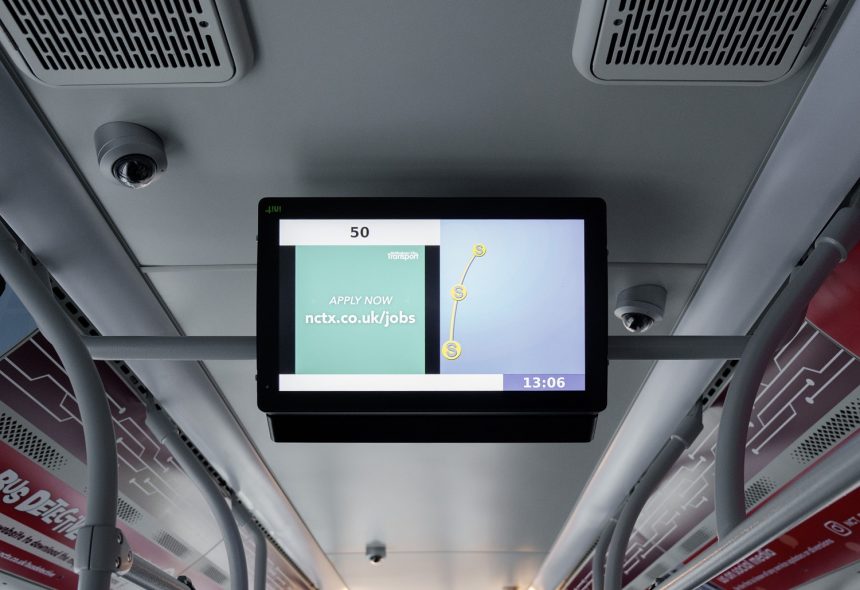Scope for ad-hoc exemptions from the Accessible Information Regulations (AIR) has been outlined in guidance on how those requirements should be applied by operators.

It comes as questions mount around how coaches used on rail replacement work that falls within scope of AIR by being a local service will comply. The Regulations require audible and visual announcements of information including destination and the next stopping point.
While some rail replacement services will be able to utilise an exemption when over half the mileage covered has 15 miles or more between stops, others will not. AIR will apply to the newest vehicles from 1 October, with two further dates for compliance on older stock following at 12-month intervals after that.
The guidance, published on 26 April, is intended to explain AIR requirements so that in-scope operators can comply. It also describes how non-compliance will be dealt with and how complaints about that can be made.
Suggested is that a light-touch approach to enforcement will be taken. DVSA involvement is likely only when there is a “sustained and significant issue, potentially including deliberate or negligent non-compliance,” although the guidance adds that in those cases the matter may still be escalated to the Traffic Commissioner.
Also noted is that where a compliant vehicle cannot be provided on an in-scope service, drivers should be supported to assist disabled passengers, such as by telling users when to alight.
Surprisingly, tours that are specifically exempt from AIR form are mentioned in the guidance. It states that passengers on those “may… still benefit from accessible information.” There is no legal requirement for operators to consider such provision, however.
One party connected to the coach industry has already suggested that exemptions from AIR may be necessary for in-scope rail replacement.
The Accessible Information Regulations guidance states that ad-hoc exemptions can be made by the Secretary of State for Transport without recourse to a statutory instrument, but that various information would be considered by the Department for Transport when deciding whether one should be issued.
That will include whether a “conscious decision” was made to include services, vehicles or operators of the type in hand when the Regulations were developed. Potential competitive advantage, whether an operator has taken all reasonable steps to comply, and if lack of an exemption will directly contribute to a permanent withdrawal of local services will also be in play.
Evidence will be required to support any exemption, which if granted, is “likely to be issued for a temporary period.”
Read the guidance document here.
source: route-one.net
